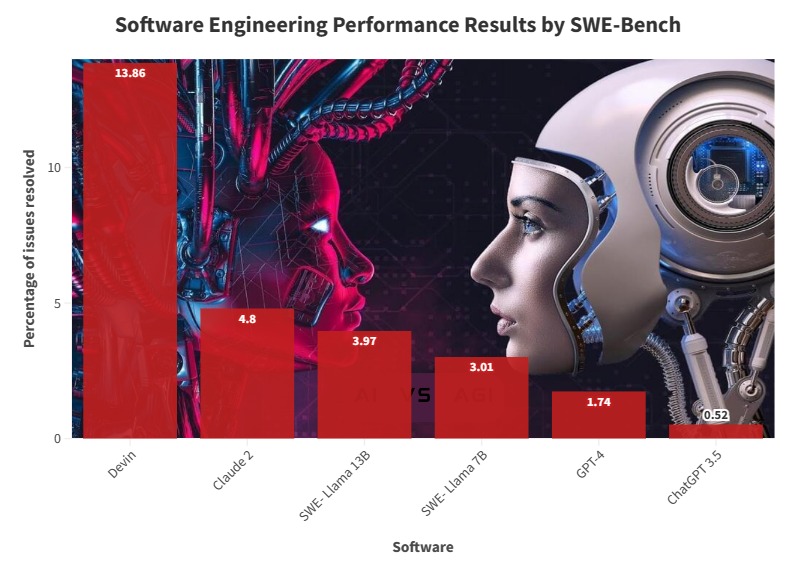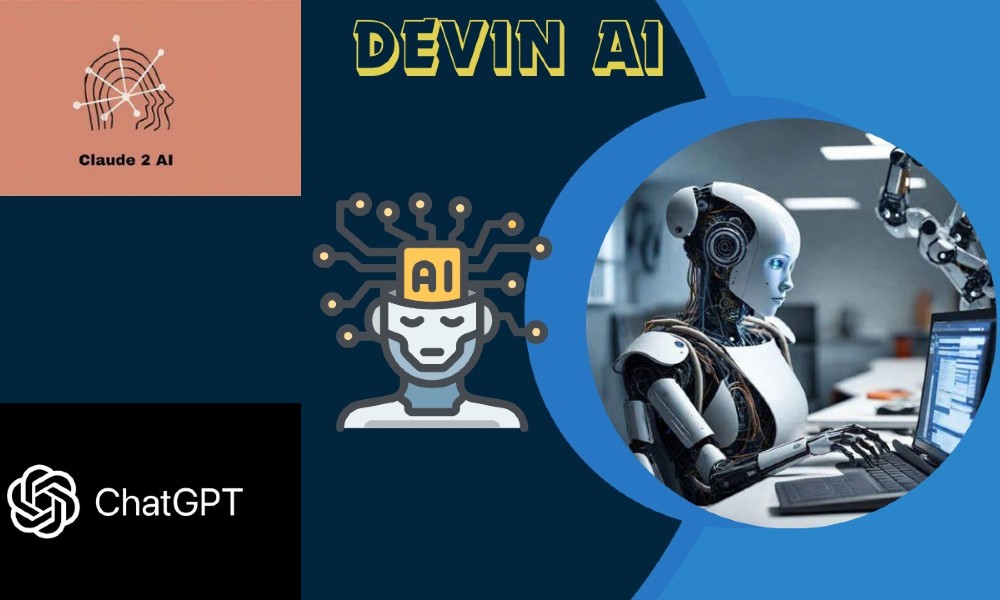With Devin AI- the first AI software engineer, ready to be hired for engineering work, this technological revolution signals a potential job market upheaval.
Engineering students fear that that Devin, an Artificial Intelligence(AI) software, can take a toll on the jobs of young engineers who at the beginning of their jobs have to do generic coding. Devin can do the same work faster and with more efficiency.
Manan Bajaj, a final-year student of B.Tech Computer Science Engineering with specialization in Internet of Things (IOT) and Intelligence Systems from Manipal University, Jaipur, said, “Devin AI has good accuracy because the domain of its data is very large. It can write efficient codes with our ideas and will surely do the work quicker but it can only do generic tasks. If a new code is invented that the AI is not fed with then it won’t be able to perform, meaning that AI needs humans to control it. It’s the human brain that can innovate to create new things and then teach the same to AI to take its benefit in the long run.”
He said that AI is trained on neural networks and it is a new revolution, just like the World Wide Web (WWW) in the late 90s. He said that people feared that they would lose jobs when the WWW came into existence, but it actually created more jobs. However, AI is unpredictable, he added.
Bipin Abraham Senior Analyst, Talent Supply Chain Department at Accenture said that the future of Devin is unpredictable. He said, “This AI is better than ChatGPT and others in terms of its accuracy, we already use many AI software in the company but it still needs a workforce to control it.” He added that AI is growing at a high pace, if this software continues to increase its efficacy, then it can surely impact jobs in the next five to ten years.
Prof. Asha Rani Gagneja from Manipal University said that what needs to be taught to future engineers is not clear, as now the AI can do data structuring and algorithm analysis which was earlier done manually by engineers. She said, “The subject of teaching will change as there will be a drastic change in the work culture and job genre. Now the job would be to control the AI and make it work in the required direction instead of doing the whole work on your own.”
Gautam Kaushal, a software engineer said that this generative AI tool will not replace the job of engineers altogether but it will certainly impact the jobs that require skills that are not too advanced. “Software engineers will still be needed to develop full-fledged websites that we see today, but certain aspects of developing software will be affected by this next-gen generative AI tool,” he said.
A New York-based applied AI lab Cognition developed the software named Devin. The company calls it “the first AI software engineer”. Devin is capable of executing complex engineering tasks that require thousands of decisions to be made while programming. The software knows developer tools like Shell and Code Editor.
The company claims that this AI model is capable of creating full-fledged software, debugging, decoding, and addressing live problems while coding. Additionally, it is capable of following directions and operating well in accordance with input. It can quickly adjust to new instructions and codes. The software doesn’t make errors like humans and is consistent and uniform in coding.
Although the introduction of this software is a great advancement for the engineering field, there is debate on whether companies will still want engineers or whether engineering jobs will be fewer in number.
Another software engineer said that AI is very unpredictable but it has not taken away many jobs, and that a lot of people who lost jobs did so because of the recession. He added that Devin is way more efficient than ChatGPT and other such AI tools but it still requires an engineer to be used. “People who know how to integrate AI in their work will never be out of a job, the workforce might be reduced from eight to five but it will not take away jobs in large numbers,” he said. AI can’t solve real-time problems, that only a person can do, he added.
Manan explained that AI doesn’t have the capabilities of a human brain and epiphany. Epiphany is when the brain suddenly connects the dots between prior experiences and current knowledge, it is like a moment of clarity that solves a problem. “The trouble with AI is that it ruins the entire system if the output it produces is used as an input five or six more times. AI is limited by the data it is given; it can only produce outcomes by manipulating the data it already has, and it is unable to do tasks outside of its current domain of expertise,” he added.
“Devin can solve Data Structure and Algorithm problems with accuracy unlike ChatGPT, which frequently messes up with coding. It has the capability to plan, execute, and collaborate on complex software engineering tasks with inputs provided by the controller”, explained Gautam.

SWE-bench is an automated benchmark for software engineering systems. The bench evaluates, via unit tests, a system’s ability to solve issues in real-world code bases. In the SWE-bench report, Devin AI successfully resolved 13.86 per cent issues, which is far more than the previous highest unassisted baseline of 1.96 per cent. On giving the exact files to edit, the best previous model resolved just 4.80 per cent issues.



